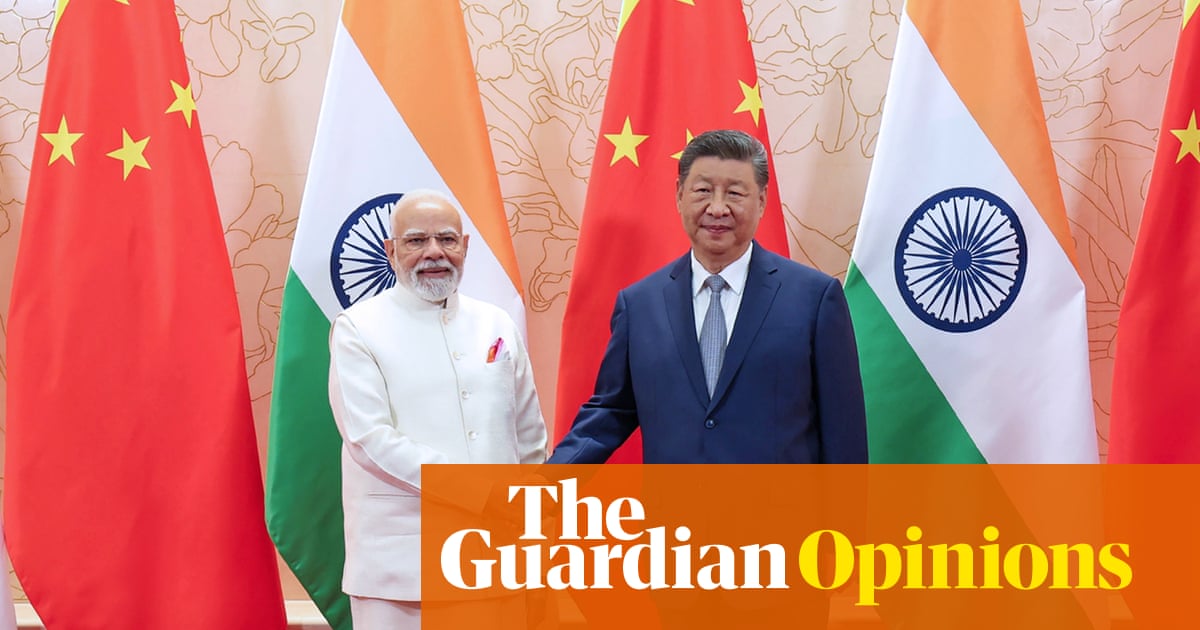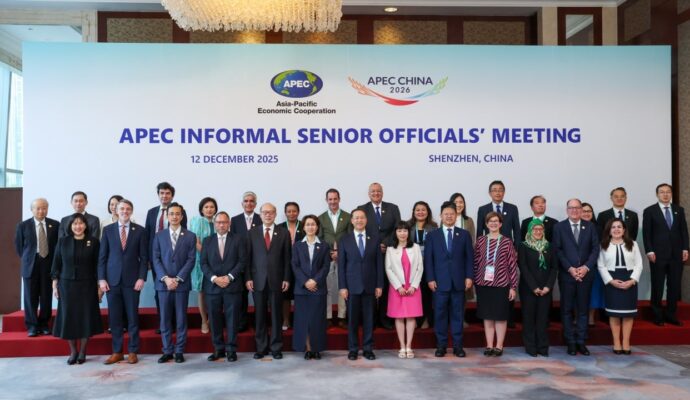
Donald Trump’s imperial tendencies see the US president wield tariffs and sanctions in the expectation that America will receive tributes. Yet his latest move – punishing India with 50% tariffs for Russian oil purchases once encouraged by the US – has produced not submission but spectacle. It has sent India’s Narendra Modi to China for the first time in seven years as Xi Jinping hosted more than 20 leaders for the Shanghai Cooperation Organisation (SCO) summit in Tianjin. And it is in Tianjin, not Washington, where it looks as if the hinge of history is moving.
The SCO is easy to dismiss: the bloc is a bundle of contradictions. India and Pakistan remain adversaries. China and India still stare across a garrisoned Himalayan frontier, though relations have thawed since last October’s border breakthrough. Russia and China vie for influence in Central Asia. Unlike Nato, the SCO has no binding defence commitments. For much of its life, it has looked like a paper tiger, sending out communiques that were all roar and no bite.
But in geopolitics, appearances are important. To see Mr Modi, Mr Xi and Vladimir Putin smiling and joking is to watch Washington’s influence fade. Mr Trump’s tariff broadside against India makes Tianjin significant. Here was the prime minister of India – supposedly the US’s Asian counterweight to China – affirming that New Delhi and Beijing are “partners, not rivals”.
India’s calculation is straightforward. It has red lines: agriculture will not be opened up to US demands; oil purchases cannot be determined by Washington; the ceasefire with Pakistan was conceded by Islamabad, not brokered by Mr Trump. Backing down would look like weakness. Far better, from Mr Modi’s perspective, to demonstrate that the US cannot take India’s partnership for granted, and to seek friends elsewhere.
For China, the rewards are immediate. Mr Trump has given Mr Xi a stage on which to pose as the host of an important multipolar gathering. Cai Qi, Mr Xi’s chief of staff and a member of China’s top ruling body – the first to hold both roles since Mao’s era – was dispatched to meet Mr Modi, an unmistakable gesture of intimacy from China’s rulers. Beijing sees the SCO as emphasising the US’s absence and letting others seize the stage.
The implications stretch well beyond South Asia. For Moscow, every handshake in Tianjin underlines that sanctions have not made it a pariah. For Turkey, attendance preserves its ambiguity as a Nato member. For Iran, the SCO condemned the US-Israeli attacks it suffered this summer. The more this theatre normalises China and Russia as leaders of a non-western bloc, the harder it becomes for Washington to muster global consensus – notably over Ukraine – in future crises.
Nor was Tianjin just about Eurasia. A spat with the Philippines over Taiwan on the eve of the summit reminded delegates of China’s reddest lines. The SCO claims it is inclusive. But Beijing runs the show. Mr Trump sought a kowtow from Delhi. Instead, he has handed Beijing the platform for its long game – building a system beyond the reach of the US. Whether that would allow more room for other states to manoeuvre is moot. The SCO may never fight China’s wars, but it ensures Beijing will never stand alone. That is the high price the west may end up paying for Mr Trump’s narcissistic delusions.


